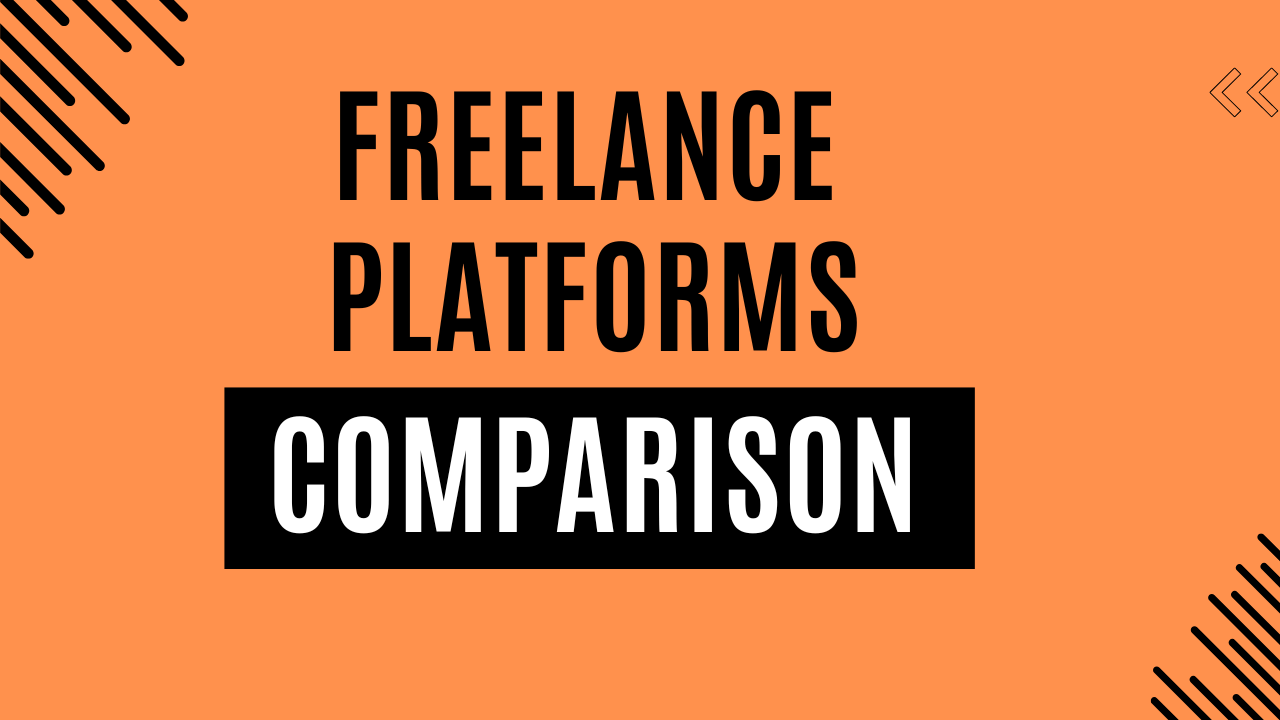Introduction:
With the rise of the gig economy, freelance platforms have become the go-to place for businesses and freelancers to connect and collaborate on various projects. However, with a plethora of options available, finding the right platform that aligns with your skills and goals can be a daunting task. In this blog post, we will compare popular freelance platforms, highlighting their unique features, target audiences, and opportunities, to help you make an informed decision and find the perfect match for your freelancing career.
Upwork:
- Overview: Upwork is one of the largest and most well-known freelance platforms, catering to a wide range of skills and industries.
- Pros:
- Vast client base with a constant influx of projects.
- Ability to set competitive rates and negotiate contracts.
- Offers hourly and fixed-price projects, providing flexibility.
- User-friendly interface and time tracking tools for transparency.
- Cons:
- High competition may make it challenging for new freelancers to secure projects.
- Upwork charges a service fee based on your earnings.
- May require patience to build a strong reputation and gain long-term clients.
Freelancer.com:
- Overview: Freelancer.com is another popular platform that covers various freelance categories.
- Pros:
- A wide range of project categories available for freelancers.
- Option to bid on projects, which allows for direct communication with clients.
- Contests and competitions offer additional earning opportunities.
- Cons:
- Freelancer.com’s competitive nature may lead to lower project prices.
- Quality control can be a concern, as some clients may not thoroughly vet freelancers.
- The platform charges fees for various features and services.
Fiverr:
- Overview: Fiverr is unique in its approach, focusing on offering “gigs” or predefined services at set prices.
- Pros:
- Ideal for creative and niche services, allowing freelancers to showcase their specialties.
- Quick and straightforward project transactions with fixed pricing.
- Fiverr promotes services through its platform, potentially attracting clients to your gigs.
- Cons:
- Limited price range for basic services, potentially undervaluing more complex projects.
- The platform charges service fees and can be competitive for some service categories.
- Building a reputation and gaining visibility may require time and effort.
Toptal:
- Overview: Toptal is a premium platform known for its focus on highly skilled freelancers and top-tier clients.
- Pros:
- Exclusive and high-quality projects for top-notch freelancers.
- Rigorous screening process ensures a high standard of talent on the platform.
- Hands-on matchmaking between clients and freelancers, saving time on bidding.
- Cons:
- Strict screening may make it challenging to get accepted as a freelancer.
- Premium nature of projects may lead to longer client acquisition cycles.
- Toptal retains a percentage of your earnings as part of its premium service.
Conclusion:
Selecting the right freelance platform is a crucial step in establishing a successful freelancing career. Each platform offers unique opportunities, challenges, and target audiences. Upwork and Freelancer.com are more generalized platforms with a broader range of projects, while Fiverr focuses on predefined services at set prices. Toptal, on the other hand, caters to a premium market with high standards.
Consider your skills, experience, and the type of projects you seek before choosing a platform. Test out different platforms, if possible, and be patient as building a strong freelance reputation may take time. Ultimately, finding the right fit will open doors to exciting opportunities and allow you to thrive in the dynamic world of freelancing.
